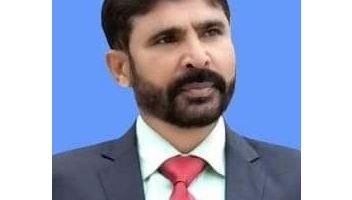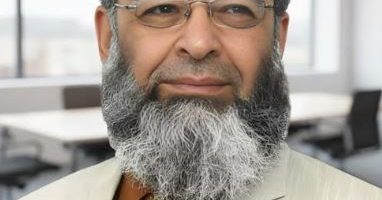Role of Youth in Pakistani politics

Ayesha Arshad
The active participation of youth in the political landscape of Pakistan holds profound implications for the nation’s democratic development and socio-economic progress. As a country with over 63% of its population under the age of 30, Pakistan possesses a unique demographic advantage that, if effectively harnessed, can drive transformative changes. The youthful energy, innovation, and perspectives embedded within this demographic make them a critical asset for national growth. However, realizing this potential requires overcoming systemic barriers and creating an environment conducive to meaningful youth engagement in politics.
The youth have historically played a significant role in shaping Pakistan’s political narrative. During the Pakistan Movement, young individuals were instrumental in the struggle for independence, participating actively in rallies, protests, and campaigns. Their enthusiasm and commitment were pivotal in galvanizing public support for the cause. This pattern of active involvement has persisted in subsequent decades.For instance, the 1968 student uprising against the Ayub Khan regime marked a defining moment in Pakistan’s political history. Students organized large-scale protests that contributed significantly to the eventual resignation of Ayub Khan. Similarly, youth participation in the 2014 Azadi March, led by Pakistan Tehreek-e-Insaf (PTI) under Imran Khan’s leadership, highlighted their enduring influence. These examples underscore the critical role young people have played in challenging oppressive regimes, advocating for reforms, and pushing for greater accountability in governance.
Despite their historical significance, the youth in Pakistan face numerous obstacles that hinder their full participation in the political process. These challenges are multifaceted, encompassing structural, economic, and cultural dimensions.The lack of youth representation in decision-making bodies is a glaring issue. Political parties often prioritize senior leaders, sidelining the voices of younger members. This exclusion perpetuates a cycle where the concerns and aspirations of youth remain unaddressed in policymaking.Widespread unemployment and underemployment among the youth exacerbate their political disillusionment. Economic insecurity limits their ability to actively engage in political activities, attend rallies, or dedicate time to political advocacy.Traditional cultural values often discourage youth from actively participating in politics. The perception of politics as a corrupt and untrustworthy arena further dissuades young individuals from pursuing political careers. Family pressures and societal expectations also act as deterrents.Many young Pakistanis view the political system as corrupt, ineffective, and disconnected from their realities. This perception breeds cynicism and apathy, further diminishing their motivation to participate.Outdated power structures and an incomplete democratic framework limit opportunities for youth to engage meaningfully in politics. The lack of institutional support for youth-led initiatives and the absence of mentorship programs within political parties further compound this problem.
Opportunities for Youth Engagement in Politics
While challenges persist, numerous opportunities exist to enhance youth engagement in Pakistani politics. The digital revolution has opened new avenues for political participation, providing platforms for young people to voice their opinions, mobilize support, and influence public discourse.Social media has emerged as a powerful tool for political engagement. Platforms like Twitter, Facebook, and Instagram allow young individuals to discuss political issues, organize online campaigns, and shape public opinion. Movements like PashtunTahafuzMovement and JusticeForZainab have demonstrated the impact of youth-led online activism in raising awareness and driving change.Several organizations and initiatives are actively working to promote civic engagement and political activity among young Pakistanis. These organizations provide training, capacity-building opportunities, and networking platforms to empower youth as active citizens and leaders.Comprehensive civic education programs can play a crucial role in equipping young people with the knowledge and skills needed for effective political participation. By fostering a deeper understanding of democratic processes and rights, such programs can cultivate a generation of informed and engaged citizens.Introducing youth quotas in political parties and legislative bodies can ensure better representation and visibility. Such reforms can help dismantle the barriers that prevent young people from entering the political sphere.The participation of youth in recent political movements highlights their potential to drive change. A prominent example is their involvement in Imran Khan’s “final call” protest on November 24, where students and young supporters played a central role in mobilizing support for the Pakistan Tehreek-e-Insaf (PTI). Khan’s direct appeal to students to stand up for their rights exemplifies the growing recognition of youth as a key demographic in shaping political outcomes.These movements not only amplify the voices of young people but also underscore their ability to influence the democratic process. The energetic participation of youth in such protests reflects their commitment to addressing systemic issues and advocating for a more equitable political framework.
To utilize the potential of Pakistani youth, it is imperative to create an environment that encourages and facilitates their involvement in politics. This requires a multi-pronged approach involving government, civil society, and political parties.Educational institutions should integrate civic education into their curricula to promote political awareness and active citizenship among students.Providing platforms for youth to interact with policymakers, participate in debates, and contribute to policy discussions can foster a sense of ownership and responsibility.Economic reforms aimed at reducing unemployment and poverty among the youth can enhance their capacity to engage in politics. Scholarships, internships, and mentorship programs can further support their development.Political parties should adopt inclusive policies that prioritize youth representation. Establishing youth wings within parties and encouraging young candidates to contest elections can bridge the generational gap in politics.Harnessing the power of digital platforms can enhance youth participation by providing accessible and inclusive spaces for political discourse.
The participation of youth in Pakistani politics is not merely a matter of representation; it is a prerequisite for the nation’s democratic progress and development. By addressing the structural, economic, and cultural barriers that hinder their involvement, Pakistan can unlock the transformative potential of its younger generation.The role of youth in historical and contemporary political movements demonstrates their capacity to drive change and shape the nation’s future. However, realizing this potential requires concerted efforts to create an inclusive and participatory political framework. Collaborative efforts among government, civil society, and political organizations are essential in this regard.As Pakistan navigates the complexities of the 21st century, the energy, creativity, and ideals of its youth will be instrumental in building a brighter and more prosperous future. By empowering young people to actively participate in politics, Pakistan can not only strengthen its democratic institutions but also ensure sustainable development and social cohesion. Indeed, as the saying goes, “The youth are the future of the nation.” It is time to harness their potential for the greater good of society.
Ayesha Arshad
BS English
Related News

The Doctrine of Putin and the Direction of Russia
Dr. Muhammad Akram Zaheer For more than two decades, Vladimir Putin has been the centralRead More

Turning Deterrence into Dividends
by Muhammad Mohsin Iqbal Field Marshal General Syed Asim Munir’s stewardship of Pakistan’s armed forcesRead More


Comments are Closed